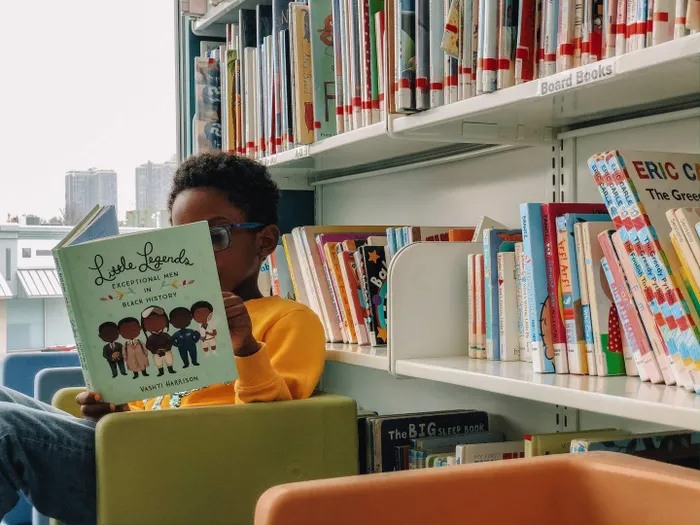No books, no future: The cost of neglecting early childhood literacy
Education is key

By ensuring every child has access to books from the earliest years, we can nurture not only readers but thinkers, dreamers, and doers, says the writer.
Image: Pinterest/@Adanna Dill
Can a nation thrive if its youngest citizens grow up without books? The answer should be obvious. Yet in South Africa, more than 40% of households have no books at all. The situation is just as troubling within early childhood development (ECD) centres, where 61% have fewer than 10 books available, and only 56% provide age-appropriate reading materials across different age groups.
Access to books in early childhood is not a “nice-to-have” - it’s the very foundation of all future learning and development. But we are failing our children - a fact made painfully clear by the now all-too-familiar statistics: 80% of Grade 3 learners cannot read for meaning, and the country ranked last out of 57 nations in the 2021 Progress in International Reading Literacy Study (PIRLS).
Behind these numbers are millions of children growing up without the most basic tools for learning - not just books, but the chance to hear stories and connect words to ideas. This lack of exposure robs them of far more than literacy: it stunts their cognitive, emotional, and psychosocial development. Children who miss out on these foundational experiences are more likely to fall behind academically, drop out of school, and face greater vulnerability to poverty and economic exclusion later in life.

Deb Zelezniak, CEO of the Santa Shoebox Project
Image: Deb Zelezniak
No one expects a child under five to read independently. But this vital developmental window - from birth to five - is when children learn how to learn. They must begin to explore books, listen to stories, and recognise that symbols on a page represent sounds, meanings, and imaginative worlds far beyond their own.
These early encounters with books build essential life skills, from critical thinking and emotional regulation to numeracy, empathy, problem-solving, and creativity. As importantly, they nurture a lifelong love of reading.
Without this foundation, children begin their academic journey at a disadvantage. For many, that gap only widens as they move through the system. Book Dash notes that even a single book can dramatically improve a child’s school readiness compared to peers who have none.
The good news is that this is a solvable problem. Civil society is already responding. Organisations like the Santa Shoebox Project have installed more than 220 reading corners in ECD centres around South Africa, creating inviting, book-filled spaces where children can develop a positive association with reading. But these efforts, while impactful, are only scratching the surface. Scaling such solutions will require broader support, particularly from the government and the private sector.
Encouragingly, the recent national budget speech included promises of increased support for the ECD sector. It’s a step in the right direction, but also long overdue. Decades of underfunding mean that properly resourcing and registering ECD centres - let alone filling them with relevant, multilingual books – remains a major challenge. Whether this new funding will directly improve access to books is still unclear.
If we’re serious about addressing South Africa’s literacy crisis, we must stop treating it as a problem that begins in school. It starts long before then. By ensuring every child has access to books from the earliest years, we can nurture not only readers but thinkers, dreamers, and doers.
The building blocks are simple. The return on investment is life-changing. The time to act is now.
Deb Zelezniak, CEO of the Santa Shoebox Project